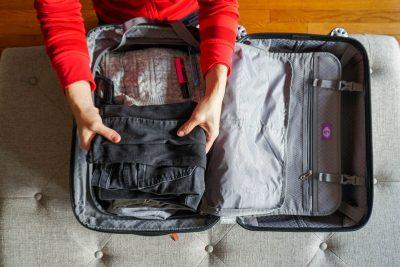As students from around the world prepare to stream back into America’s biggest college town — threatening to undo Massachusetts’s progress in subduing the spread of the coronavirus — the state is ramping up precautionary efforts to keep local residents safe.

Starting Saturday, most individuals entering Massachusetts will be required to quarantine for 14 days, in accordance with Gov. Charlie Baker’s recent announcement.
Returning residents or visitors can evade this requirement by testing negative for COVID-19 during the in-state quarantine or proving a negative test administered within 72 hours of arrival.
Failure to follow new guidelines will result in a $500 fine for each day of noncompliance.
District 8 City Councillor Kenzie Bok said the fine is the best way to enforce the travel restrictions.
“It would be counterproductive to imprison people,” Bok said, “but I think a fine is partly about signaling how seriously the state or city are going to take the issue.”
Boston’s high concentration of college students is a cause for preparation, Bok said, adding that the influx of returning students may pose a threat to vulnerable populations.
“I don’t think there’s another large city in America that has as much of a population swing at any one time as Boston has at the end of August,” Bok said. “You’re trying to manage and minimize interaction, and then when you add in the fact that so much of the country is dealing with rising cases, it’s very worrying.”
Visitors and returning residents will be asked to complete the Massachusetts Travel Form before entering the state.
The form asks for contact information, a residential address and arrival and departure dates as well as confirmation of test results or symptoms.
However, some won’t have to worry about the travel order. Individuals entering Massachusetts from states designated as lower-risk are not required to complete the Travel Form.
As of July 21, New Hampshire, Connecticut, Rhode Island, Maine, Vermont, New York, New Jersey and Hawaii are considered lower-risk states for COVID-19.
For a state to be deemed lower-risk, the average daily cases had to be below six per 100,000 people and the positive test rate must be below 5 percent.
Also exempt from the rule are regular commuters to school or work, patients traveling to receive medical care, military personnel and workers providing essential infrastructure services.
However, those who receive these exemptions must keep all travel limited to the distance between their home and their destination.
If a visitor is leaving the Commonwealth before the end of their 14-day quarantine period, they will still be free to leave.
Those abiding by the full-length quarantine must not leave their place of quarantine for 14 days — unless urgent medical care is necessary — where there must be a separate bathroom facility for each travel party and food must be delivered.
Bok said universities have a responsibility to inform their students and enforce the rules of the travel restrictions.
“We’ll look to the universities to reiterate [restrictions] with their returning students,” Bok said, “and ask everybody to be tested straight away and explain what quarantining rules really mean.”
The new order is a change from the previous July 1 travel guidelines, which still instructed all incoming travelers to self-quarantine for 14 days, but did not impose a fine.
The new travel restrictions may impact the tourism industry. However, Melody Edson, owner of the 13-room Inn at the Oaks on Cape Cod, wrote in an email that she remains optimistic.
The Inn’s No. 1 priority is to keep staff and guests safe, Edson wrote. But there will only be a small disruption to bookings, as visitors to the Inn are split nearly in half between in-state or lower-risk state travellers.
The Inn at the Oaks closed March 19 due to COVID-19, but reopened June 8.
During the shutdown, the Inn lost all of its bookings, with some reservations shifted to a later date, Edson wrote. Despite having to adapt to the pandemic, the Inn has overcome its challenges.
“Business has been very good this summer,” Edson wrote, “We are running at 100% occupancy on weekends, and about 70% occupancy during the week.”
The Inn has been adhering closely to public health guidelines regarding cleaning and ensuring that guests social distance, Edson wrote.
The Boston Public Health Commission will take the lead on deciding the details of the travel restrictions, including setting up a potential system for people to report those who don’t follow quarantine orders, Bok said.
“We’re all still digesting it and figuring out what’s going to make sense,” Bok said, “I think that from the City side, we’ll be looking at ways to spread that public health message.”
























































































































